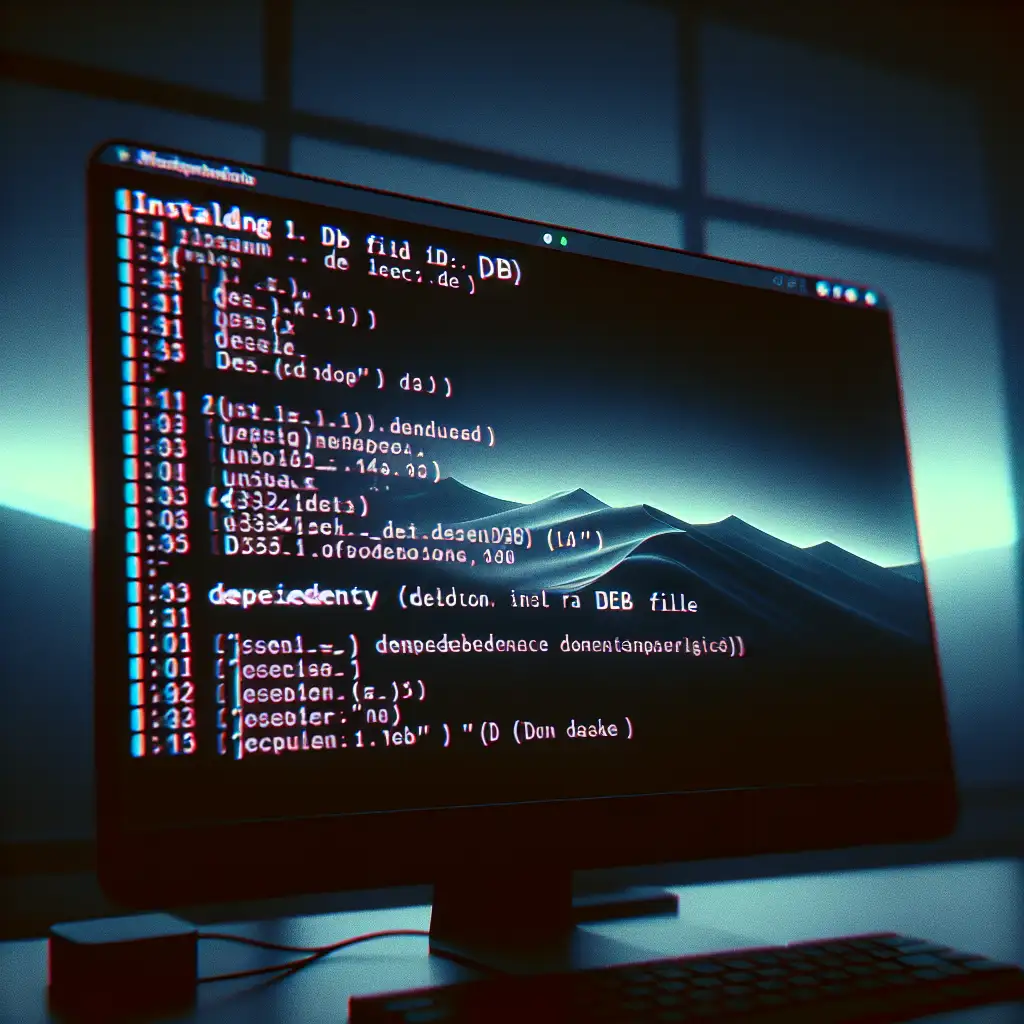Mastering the Art of Running DEB Files: Precision and Control in Debian Package Management
Opening a .deb file from the file manager? Serviceable for trivial workloads. Breaks down glaringly on anything more complex—nontrivial dependencies, version conflicts, or when you need to deploy across a fleet.
A proper workflow demands direct interaction with the package management tools provided by Debian and its derivatives. This means understanding not just how to install a DEB, but how to audit it, resolve its dependencies, and recover gracefully when something goes sideways.
DEB Files: More Than Archives
A .deb package is an ar archive with control scripts (preinst, postinst), dependency metadata, and the files to install. Upstream packages might rely on non-main repositories or assume a particular base system. Ignoring these details leads to breakage, contamination of system state, or elusive runtime errors.
Installation Methods: From Direct to Managed
dpkg — Direct Control, Minimal Assistance
The classic:
sudo dpkg -i ./sample-software_1.2.3_amd64.deb
Result: Installs immediately, ignoring any unmet dependencies. When it fails, you’ll see:
dpkg: error processing package sample-software (--install):
dependency problems - leaving unconfigured
This doesn’t resolve missing requirements—just dumps you at the first error. Useful for debugging base filesystems or minimal docker images where you want exactly what’s installed, nothing more.
Recovery:
sudo apt-get install -f
APT will attempt to fetch and install whatever is missing.
apt install — Dependency-Managed Local Installation
Modern Ubuntu (16.04+) and Debian allow
sudo apt install ./sample-software_1.2.3_amd64.deb
Note the ./—APT distinguishes local files from repository packages. This approach automatically handles dependencies, pulls from all enabled repositories, and maintains proper state.
If you forget the leading ./, APT may look for sample-software in the configured repos, yielding a “Package not found” error.
gdebi — Lightweight, Purpose-Built Installation
For single-shot installs with dependency resolution (no need for full apt update cycle):
sudo apt-get install gdebi-core
sudo gdebi sample-software_1.2.3_amd64.deb
Under the hood, gdebi parses dependencies and only installs what’s missing. Quieter than apt install for isolated DEBs. Still: not perfect with highly custom or non-standard packages.
Audit Before Deploy: Extract, Inspect, Probe
Blindly installing a DEB? Risky. First, interrogate contents:
dpkg-deb -I ./sample-software_1.2.3_amd64.deb
Output: Control metadata, dependencies, maintainer scripts.
For file listing:
dpkg-deb -c ./sample-software_1.2.3_amd64.deb
Deploying to production? Untar to a temporary directory and check for overwrites or unexpected binaries.
Removal and Cleanup
Unstable state post-install is common when using dpkg alone.
Remove only binaries:
sudo dpkg --remove sample-software
Remove binaries and config files:
sudo dpkg --purge sample-software
APT-managed cleanup is more robust for dependency chains:
sudo apt-get remove sample-software
sudo apt-get autoremove
APT tracks orphaned dependencies; dpkg does not.
Nontrivial Scenarios
- Dependency is not satisfiable: Typically, missing or out-of-date repositories. Check
/etc/apt/sources.listand any files in/etc/apt/sources.list.d/. - Wrong architecture: Validate with
dpkg --print-architecture. E.g., trying to installarm64DEB onamd64base. Occasionally, multiarch can resolve this, but don’t force. - Persistent ‘broken packages’:
sudo apt --fix-broken installcan clear most, but sometimes requires manual intervention (/var/lib/dpkg/statussurgery—last resort).
Gotcha: Some vendor packages misuse dependencies (hard pins, vendored binaries). Never assume policy compliance—always verify.
Practical Example: Typical Vendor Provided Package
Suppose you want to install Google Chrome:
- Download package:
wget https://dl.google.com/linux/direct/google-chrome-stable_current_amd64.deb - Inspect version and dependencies:
dpkg-deb -I google-chrome-stable_current_amd64.deb - Install with dependency resolution:
sudo apt install ./google-chrome-stable_current_amd64.deb
Notice: Chrome pulls in a handful of libraries (libappindicator, fonts-liberation); failure to resolve results in a nonfunctional browser even if dpkg seems “successful”.
Advanced Tip: Extract Without Installing
Sometimes you want the files, not the install. For sandbox analysis:
dpkg-deb -x sample-software_1.2.3_amd64.deb ./tempdir/
Check for unexpected binaries or embedded scripts before deploying to sensitive systems.
Summary
DEB package installation isn’t monolithic. Use dpkg for direct manipulation, apt install for full integration, or gdebi for simple isolated installs. Always audit first, manage dependencies intentionally, and keep rollback strategies in mind.
Rough edges remain: Not all DEBs play nicely. Package management is controlled chaos—structuring it effectively makes the difference between a stable system and endless troubleshooting.
